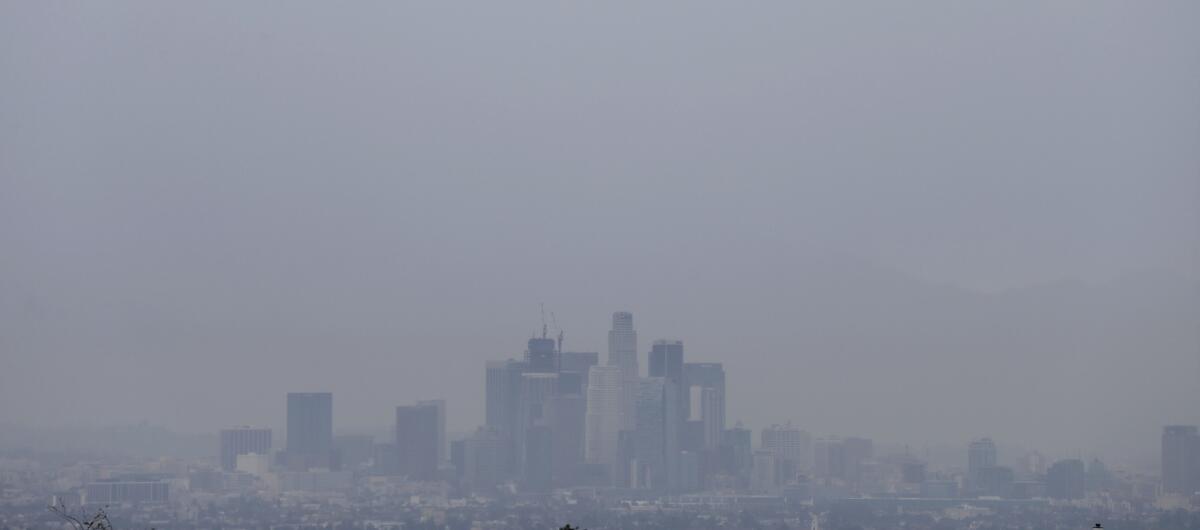L.A. officials seeded clouds during El Niño storm in hopes of more rain

Rain obscures the view of downtown Los Angeles in February. More is expected late this week.
Clouds over Los Angeles County were seeded with silver iodide to increase the amount of rainfall during Monday’s storm, marking the first cloud seeding done by the Department of Public Works since 2002.
Los Angeles County has used cloud seeding to boost water supplies since the 1950s, backing off in times of heavy rain or when wildfire devastation creates an outsized risk of flooding or debris flows.
FULL COVERAGE: El Niño in California >>
A 2009 cloud seeding contract for services was terminated after the Station Fire, which burned roughly 250 square miles of the Angeles National Forest. Then, last October, the state’s severe drought led the county Board of Supervisors to approve a new one-year contract with Utah-based North American Weather Consultants for as much as $550,000 a year.
This week’s storm offered a good opportunity for “the first go-round for cloud seeding” this season, Department of Public Works spokesman Steve Frasher said.
North American Weather Consultants has set up land-based generators in 10 locations between Sylmar and Pacoima, Fraser said. Only some of those generators were used Sunday night, as weather conditions were not ideal in all areas.
The generators shoot silver iodide into the clouds, creating ice particles. Water vapor freezes onto those particles, which fall as rain.
See the most-read stories this hour >>
Cloud seeding cannot create clouds, but it increases the amount of rainfall from existing clouds. That storm water is then captured in dams and in the Pacoima, Big Tujunga and San Gabriel watersheds.
The county estimates that seeded clouds produce about 15% more rainfall.
ALSO
The West Coast’s tallest building tops out: The view from 1,100 feet up
Iditarod dog-sled race is underway, with help of snow delivered via train
With huge amounts of snow, locals predict skiing in July at Mammoth Mountain
More to Read
Sign up for Essential California
The most important California stories and recommendations in your inbox every morning.
You may occasionally receive promotional content from the Los Angeles Times.










